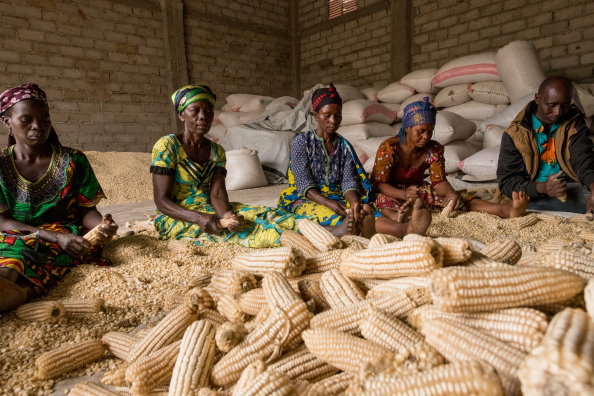The Ministry of Food and Agriculture issued a ban on a number of agro-commodities, and the Chamber of Agribusiness Ghana (CAG) and its partners have been keeping an eye on the situation surrounding the ban since it was issued.
The Chamber of Agribusiness Ghana is conscious of the fact that as a consequence of all of this ban, not only have exports of soyabeans and rice increased, but also a number of rice mills and soyabean processing factories have been deprived of the essential raw materials for their production processes as a result.
Local poultry farms are equally short-changed in this impasse. Unfortunately, CAG has also taken note of a letter that was issued by the Ministry of Food and Agriculture granting permission to some businesses to export same grains that were barred out of the country while the BAN was still in force.
There are commodity offtakers who invest in farming of these grains. They provide inputs, credits and machinery. Therefore, a universal ban by government will deprive these offtakers of their investments and farmers, the needed supports.
The Chamber of Agribusiness Ghana thus recommend to government to give exemptions to these legitimate investors in our grains sub-sector.
The ban needs to be targeted to protect investments and guarantee supports to grain farmers across the country. The implementation of export ban risks being merely a theoretical exercise rendering it meaningless in the absence of appropriate procedures to ensure that they are followed.
It is necessary for the Ministry of Local Government and Rural Development to enact a bye-law that makes it illegal for individuals and businesses located outside of the country to purchase raw materials at farm gates.
It is imperative that the Ministries of Agriculture, Trade, and Rural Development (MOTI/MoFA/MLGRD) collaborate with other relevant private sector stakeholders, other government agencies, and private companies in order to establish a legal framework through which international traders can conduct business with our smallholder farmers.
Additionally, MoFA is obligated to make credit accessible to agro-processing firms so that they can purchase these materials for storage. With the rising cost of living, transportation, energy costs and inflation, CAG is deeply concerned that the ban may result in the build-up of a black market, especially if government does not negotiate adequately with the farmers, and key stakeholders.
Eliminate the current system that is in place at GIPC, which allows investors to purchase agricultural lands, take advantage of our fertile soils, exploit workers, and then export the produce back to their countries, thereby depriving the local agro-processing industry and domestic consumers of these products.
In order to prevent the exploitation of our agricultural lands and food production systems, the time has come to empower existing institutions and agencies such as the Ghana Grains Council (GGC) and the Ghana Commodity Exchange (GCx) to act. Thus, the GGC can implement its standard grain pricing regime via GCx; where all grain trades, including those involving soyabean, take place on GCx. Farmers can apply for loans/credits using their soyabean and grain inventory as security thanks to the GGC/GCx warehouse receipt system.
CAG recommendations to enforce the ban and improve grain trade:
1. In regulating prices, this should be solely done by the actors in the value chain and announced by government or the commodity exchange companies.
2. Current committee on soyabean/grain trade excludes the real actors. Engage key grain value chain stakeholders in policy decisions.
3. GRA should rather leverage on tax as a tool to discourage export.
4. MoFA and Customs should take advantage of technology to enforce the ban.
5. If foreigners are able to support farmers to produce grains, what is preventing government from replicating same? Government needs to be intentional in investing in the grains sub-sector.
6. Weed out politically-connected Ghanaians who connive with foreigners to flout the ban.
7. Government must empower GCX and financial institutions to expand the warehouse receipt system to streamline trading of these commodities.
8. The GGC/GCx should from next year publish monthly price monitor for grains. This will provide farmers competitive price regime to trade their produce.
9. Local poultry farms and agro-processing factories should support grain farmers by deliberately investing in the grain production.
Appreciation Chamber of Agribusiness Ghana thank our partners and stakeholders who provided information and granted interviews on this issue.
We particularly thank Mr. Yaw Ohemeng Kyei the President of the Commodity Brokers Association of Ghana (CBAG), Anthony Morrison, CEO of the Chamber of Agribusiness, Organic Farmers Association of Ghana, Kwashie Darkudzi, Chairman of Darsfield Village Farms and Outgrowers; the Policy and Research Bureau, Chamber of Agribusiness Ghana, Christian Sewordor (CAG), Courage Besa-Adanu (CAG), Elorm Allavi (CAG) and Kofi Kyeremanteng Nyanteng (CAG).








